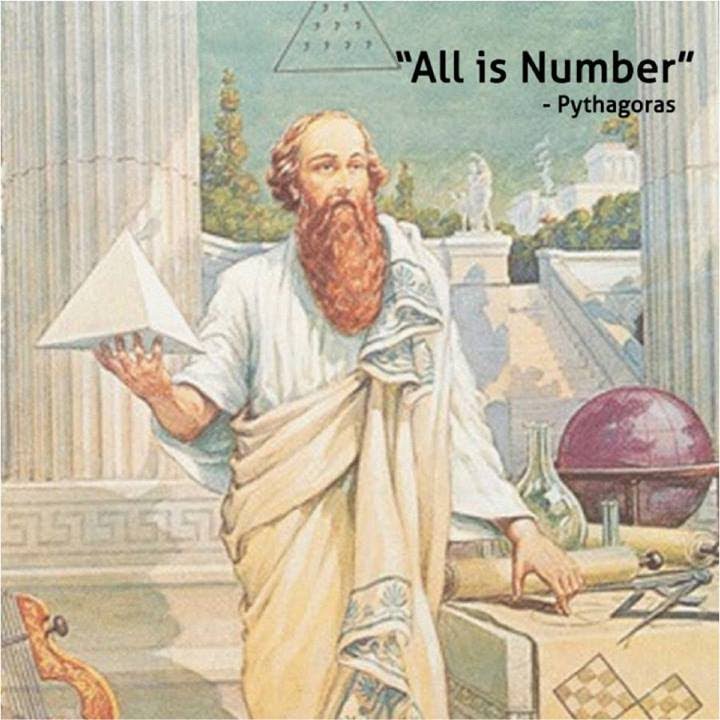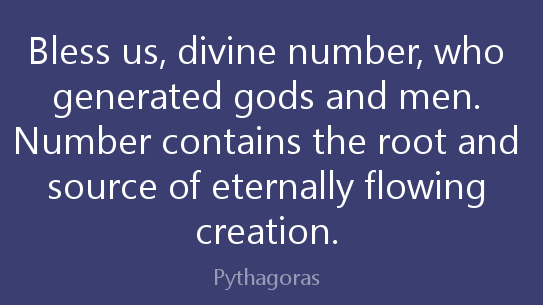|
home | what's new | other sites | contact | about |
|||
|
Word Gems exploring self-realization, sacred personhood, and full humanity
Editor's Essay: What Is Mathematics? subtitled:
return to "Mathematics" main-page
"At its deepest level, reality is mathematical in nature." Pythagoras (quoted by Plato)
Editor’s note: There are two great teachers whom I’d like to acknowledge here regarding the following definition of mathematics. (1) Isaac Asimov had a reputation as the “best explainer” of scientific principles, a point of fame not unwarranted. I’ve learned so much from Dr. Asimov over the years. Also, while there are many professors offering valuable insights concerning the nature of mathematics, in my opinion, (2) David M. Bressoud of Macalester College deserves special commendation for clarity of thought and getting to the heart of the matter.
Mathematics is often referred to as “the language of science.” For a long time I accepted this statement as most closely approximating the significance of mathematics. But I now see that we need to go deeper. Mathematics is more than the language of science. It’s the language, a symbolical representation, of reality itself. I’ll explain what this means. The nature of mathematics becomes clear, I think, when we consider its origins.
mathematics is abstracted from the world around us For example, millenia ago it was noticed that the distance around a circle was related to its diameter. No matter how large or small the circle, it was discovered that its circumference was always a little more than 3 times the diameter. Later this ratio of circumference-to-diameter was codified and designated as π (pi).
Editor's note: Strangely, the value of π is found throughout nature in places having nothing to do with circles. π seems to be some sort of universal constant, but this is a story for another time.
Similarly, thousands of years ago the Egyptians and Babylonians, or possibly a more ancient people, perceived that right-angled (90°) triangles might offer reliable means for measuring fields and foundations of buildings. It was discovered that the two shorter sides of a triangle could be used to predict the length of the longest side. Much later the Greek mathematician Pythagoras would eponymously make famous this relationship of “short sides to long side,” now known to us as the Pythagorean Theorem. But the simplest example of mathematics’ origins is to be found in the realm of number. Even primitive man, emerging from a fog of superstition and fear, would begin to perceive a certain structure and regularity to his uncertain world: he would notice 5 fingers, and 5 trees, and 5 goats, and 5 days. Gradually, this understanding and cognition of “five-ness” would separate itself from tangible objects of the world and now – one of the great advances of civilization – begin to live in one’s mind as abstract number.
The realm of science is about gathering data and then searching for relationships and patterns among the data. Mathematics is sometimes called the language of science in that it helps us quantifiably express these relationships and patterns. Mathematics, however, is more than the language of science as its domain extends beyond the process of knowledge production. Mathematics might also become a language, a symbolical representation, of reality itself; even, a glimpse of a deeper level of reality generally inaccessible to the five senses.
And so, shall we take issue with the evaluation of Pythagoras and Plato? "At its deepest level, reality is mathematical in nature." Pythagoras (quoted by Plato) Their assessment, I suggest, is slightly off-center. Reality might be expressed by the language of mathematics, but it goes too far to assert that reality itself is mathematical in nature. For example, I might describe a tree -- its leaves, trunk, and branches -- by means of language, which could be any language, French, German, English, or another. But, when I do, no one would credibly insist that the tree is somehow, intrinsically or existentially, now to be defined in terms of the French, German, or English languages. Reality is not mathematical in nature, as such, but is merely expressed by means of mathematics. Let's not confuse mode of expression with the "thing in itself." Mathematics, fundamentally, we finally learn, is "discovered" not "created," as per the debate on this subject. Plato was onto something with his Theory Of Ultimate Forms. While materialism would argue otherwise, Reality's nature reflects a Great Mind, a Universal Intelligence. I believe that Pythagoras, ironically, meant to say the same with his exaltation of "divine number."
|
|||
|
|

